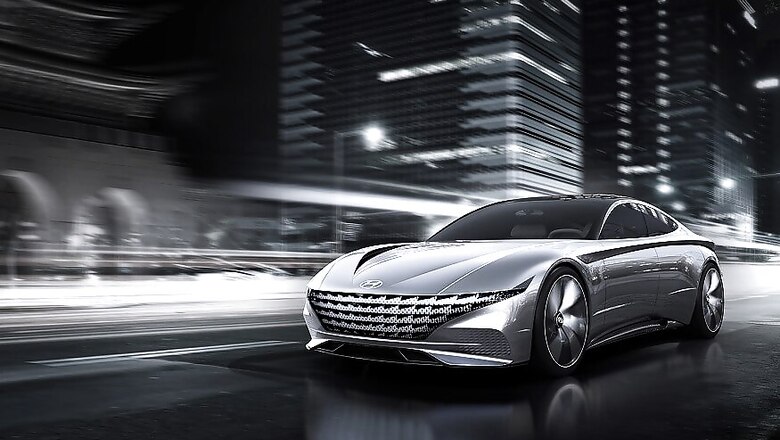
views
South Korean auto major Hyundai plans to roll out electric vehicles from its plant in India, which is set to become one of its global regional headquarters with more responsibility for local long-term planning, a senior company official said. Hyundai Motor India Ltd (HMIL), which has sold 8 million vehicles cumulatively in the country in 20 years of operations, is also targeting to cross the 10 million milestone in the first quarter of 2021. With plans to bring eight new products between 2018 and 2020, HMIL is also increasing its annual production capacity to 7.5 lakh units from January next year from 7 lakh at present.
"An electric SUV is among the eight products planned to be launched here between this year and 2020. It is expected in the second half of 2019. Initially, we will import it as a completely knocked down unit," HMIL Managing Director and CEO Y K Koo told PTI. Going forward, depending on the market response and government support for electric vehicles, he said: "Our plan is to produce EVs from our Chennai plant in the long term." HMIL will launch the electric SUV in 15 cities in India, Koo said, adding "pricing and target volume are still being finalised". Reiterating that Hyundai has identified EV as the key technology for the future in India, he said the company is not looking at bringing hybrid vehicles in the country.
"Our focus for new technology is on EVs but we need government support to make it adopted on a mass scale," he said. Koo said the government must consider reducing import duties, cutting GST rate on EVs to 5 percent from 12 percent and continuation of subsidy support under FAME scheme for personal EVs. "Also there is a need for the development of charging infrastructure, for which the industry would need government support," he said, adding HMIL would provide home charging kit when its electric SUV is launched in India.
On India becoming a regional headquarter (HQ) for Hyundai from July 2 onwards, he said it reflected the importance of the market, considering it is among the only three regional HQs along with North America and Europe. Elaborating on the significance of the development, Koo said: "It empowers us with more responsibility for long-term planning for up to ten years for the local market. Earlier we were focussed on short-term plans for up to three years." This will enable HMIL to strategize its sales, marketing, aftersales service, manufacturing, corporate planning, including exports, and product planning to react swiftly to customer needs and requirements.
"The main purpose is to continue with sustainable future growth," he said, adding that learning from the Indian experience, the North American and European regional HQs would also have a single head. Earlier, in these two regional markets, there were separate heads for manufacturing and sales and marketing. "Having a single head, like we have here in India, enables us to take decisions quickly and synergies better between manufacturing and sales and marketing operations," Koo added.
Hyundai is expanding regional headquarters till 2019 for other markets such as Russia and South America, he added. On capacity enhancement in India, Koo said: "We will increase production by 50,000 units from January 2019 at the Chennai plant. So by next year, we will have a total annual capacity of 7.5 lakh units, up from 7 lakh units this year." This has been done keeping in mind new product launches targeting volume segment, starting with a family-oriented hatchback before Diwali this year, he added.
"Our plan is that between 2018 and 2020, there will be eight new products, out of which two will be in new segments and five will be full-model changes, while one will be the electric SUV," Koo added.
Sharing the company's target in India, he said: "Based on the current production capacity and another 50,000 being added next year, we feel that we will cross the 10 million cumulative milestone in India in the first quarter of 2021."




















Comments
0 comment